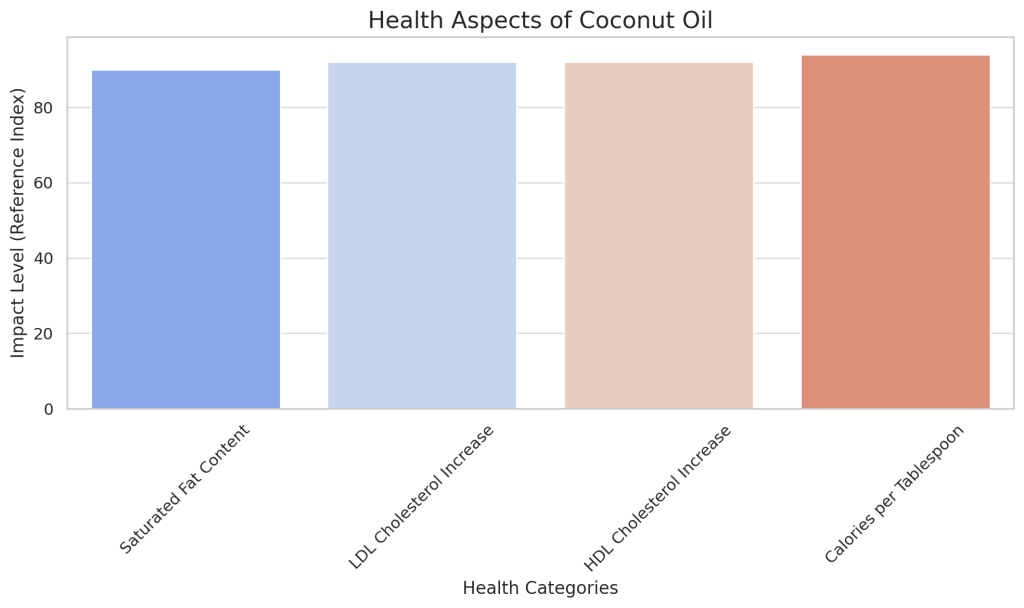Understanding Coconut Oil
Coconut oil, a staple in many households, is renowned for its versatility and health benefits. Its unique composition of medium-chain triglycerides (MCTs) and lauric acid offers various advantages, from weight loss to improved heart health. CoconutSphere, your comprehensive guide to everything coconut, delves into the nuances of this miraculous oil.
Potential Risks of Swallowing Coconut Oil
Respiratory Concerns
Inhaling or aspirating coconut oil, often a risk during oil pulling, can lead to lipoid pneumonia. This lung condition results from the aspiration of oily substances and is exacerbated by contamination with oral pathogens and toxins.
Digestive Issues
Swallowing large amounts of coconut oil can lead to digestive disturbances. It might cause stomach upset, nausea, and in some cases, diarrhea. This is due to the oil’s density and its interaction with stomach contents, potentially leading to poor digestion and subsequent issues like dehydration and weakened immunity.
Heavy Metal Contamination
While rare, there’s a risk of heavy metal poisoning associated with Ayurvedic products, which sometimes include coconut oil. Ayurvedic practices ensure safety, but it’s crucial to be cautious of products that might have traces of heavy metals like lead, mercury, or arsenic.
Benefits of Swallowing Coconut Oil
Weight Management
Coconut oil’s MCTs are effective in weight loss. They increase thermogenesis and energy expenditure, helping burn additional calories. Over time, this could lead to significant weight reduction.
Antimicrobial Properties
Lauric acid in coconut oil transforms into monolaurin, which possesses antimicrobial properties. It’s effective against bacteria, viruses, and fungi, aiding in the prevention of infections and improving oral health through oil pulling.
Enhancing Physical and Mental Well-being
Coconut oil contributes to muscle building and maintenance due to its MCT content. It’s also linked to improved memory and cognitive function, particularly beneficial for individuals with memory disorders like Alzheimer’s disease.
Heart and Skin Health
Rich in natural saturated fats, coconut oil promotes heart health by increasing HDL cholesterol. It’s also a natural moisturizer for skin and hair, preventing dryness and damage.
Hormonal Balance and Seizure Reduction
Consumption of coconut oil may aid in balancing hormones and reducing the risk of seizures, particularly in a ketogenic diet context, which is beneficial for treating drug-resistant epilepsy.
Anti-Inflammatory and Bone Health
Virgin coconut oil shows promise in reducing inflammation and treating arthritis. It also aids in treating osteoporosis by enhancing calcium absorption and combating oxidative stress.
Recommendations for Safe Consumption
While the benefits of coconut oil are numerous, it’s essential to consume it in moderation and be mindful of potential risks. Choosing high-quality, virgin coconut oil and integrating it into a balanced diet can maximize its benefits while minimizing risks.
Remember, the use of coconut oil varies from culinary applications to health and beauty regimes. Its multifaceted benefits make it a valuable addition to your lifestyle. For more insights on coconut oil and its usage, explore our article on the implications of using expired coconut oil.

Exploring the Benefits and Risks of Swallowing Coconut Oil
Benefits of Coconut Oil Consumption
- Weight Loss and Metabolism: Coconut oil can aid in weight management. Its MCTs enhance thermogenesis and energy expenditure, contributing to potential weight loss.
- Antimicrobial Effects: Lauric acid in coconut oil, which converts to monolaurin, exhibits antimicrobial properties, effective against various pathogens.
- Cognitive Health: Coconut oil’s MCTs have been linked to improved memory and cognitive function, particularly beneficial for Alzheimer’s patients.
- Heart Health: Although debated, coconut oil may increase healthy HDL cholesterol, contributing to heart health.
- Skin and Hair Care: Coconut oil is a natural moisturizer for skin and hair, preventing dryness and damage.
- Oral Health: Oil pulling with coconut oil can reduce oral bacteria and promote dental health.
Risks and Misconceptions
- Respiratory Risks: Aspirating coconut oil can lead to lipoid pneumonia, a serious lung condition.
- Digestive Discomfort: Ingesting large quantities can cause stomach upset, nausea, and diarrhea.
- Misconceptions on Constipation and Herpes: Coconut oil is not an effective remedy for constipation or herpes, contrary to some claims.
- Saturated Fat Content: High in saturated fat, coconut oil should be consumed in moderation due to potential health risks.
- Hydrogenated Forms: Avoid partially hydrogenated coconut oil, as it contains harmful trans fats.
General Recommendations
- Moderation: Consume coconut oil in moderation and under a doctor’s guidance to enjoy its benefits while minimizing risks.
- Consultation with Health Professionals: Always consult healthcare providers before treating health conditions with coconut oil.
- Awareness of Unsupported Claims: Be cautious of unsupported health claims and consult medical advice for conditions like ear infections and scabies.
Coconut oil, with its unique blend of natural properties, offers a range of health benefits when used correctly. However, it’s crucial to be aware of its potential risks and to consume it responsibly. For further insights on coconut oil, explore our article on using expired coconut oil.
Comprehensive Insights on Swallowing Coconut Oil
Nutritional Profile and Consumption Trends
- Popularity Surge: Coconut oil has gained immense popularity, often endorsed for its potential health benefits like aiding weight loss, immune support, and preventing diseases. It is a key component in popular diets like ketogenic and Paleo.
- Nutritional Content: Predominantly composed of saturated fats, particularly lauric acid, coconut oil lacks cholesterol, fiber, and only has traces of vitamins and minerals. Lauric acid, while beneficial, can raise LDL cholesterol levels.
Health Claims vs. Scientific Evidence
- MCTs and Health Claims: A common misconception is that coconut oil is primarily made of medium-chain triglycerides (MCTs), which are believed to offer various health benefits. However, most commercial coconut oil mainly contains lauric acid, a long-chain fatty acid, hence not offering the same benefits attributed to MCTs.
- Impact on Cholesterol: Research indicates that high consumption of coconut oil raises HDL (good) cholesterol, but also LDL (bad) cholesterol and triglycerides. This aligns with findings that saturated fats in general, including those in coconut oil, can elevate cholesterol levels.
- AHA Advisory: The American Heart Association recommends replacing saturated fats like those in coconut oil with unsaturated fats, emphasizing that coconut oil increases harmful LDL cholesterol levels.
Culinary Uses and Storage
- Culinary Flexibility: Coconut oil is praised for its unique flavor and aroma, making it a popular choice in cooking and baking. It’s advisable to use it in moderation, considering its high fat and calorie content.
- Varieties and Usage: Virgin and refined are the two main types of coconut oil, each having specific culinary uses. Virgin coconut oil is preferred for its flavor and nutrient content, whereas refined coconut oil is better for high-temperature cooking due to its higher smoke point.
- Storage and Shelf Life: Coconut oil should be stored in a cool, dark place or in the refrigerator. Virgin coconut oil has a longer shelf life compared to refined oil. Signs of spoilage include mold, discoloration, or off-odors.
Recommendations and Precautions
- Moderation is Key: Due to its high saturated fat content and potential impact on cholesterol levels, it’s recommended to consume coconut oil in moderation.
- Consult Healthcare Professionals: Before using coconut oil for any health-related purposes, consulting with healthcare professionals is crucial to ensure safety and effectiveness.
Coconut oil, with its complex nutritional profile and versatile culinary uses, can be a beneficial addition to a balanced diet when consumed responsibly. For more insights on coconut oil and related topics, visit CoconutSphere.

